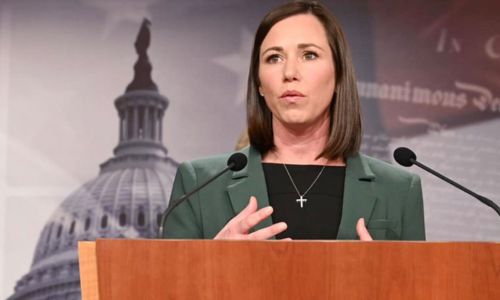Washington D.C – In recent weeks, U.S. Senators have been actively addressing the complex issue of Iran and its involvement in regional conflicts. Tensions in the Middle East have escalated, particularly with the recent conflict between Israel and Hamas, a group with ties to Iran. Senators Katie Britt (R-Ala.), Rick Scott (R-Fla.), and a coalition of colleagues have advocated for a stronger U.S. stance in addressing Iran’s activities. This article provides an overview of their actions and the broader context.
Calls for Coordinated Action A group of U.S. Senators, led by Senators Britt and Scott, has called on President Joe Biden to convene the G7 nations to take coordinated action against Iran. Their primary objective is to further isolate Iran through severe sanctions, targeting the financial resources that the Iranian government allegedly uses to finance terrorism.
These Senators have stressed the need for accountability, pointing to Iran’s long-standing role as the world’s largest state sponsor of terror. They argue that Iran’s actions directly support terrorist groups, such as Hamas and Palestinian Jihad, which have been involved in recent violent attacks against Israel.
Different Perspectives Senators Britt and Scott assert that, to deter further acts of terrorism and to prevent future violence, the United States and its allies must take action. They advocate for isolating Iran economically, aiming to cut off its financial resources, which they believe contribute to global terrorism.
However, it’s essential to note that some lawmakers hold differing viewpoints. There are those who emphasize diplomatic engagement and negotiation as the most effective means to address Iran’s behavior. They argue that targeted sanctions alone may not yield the desired results and could escalate tensions further. These Senators prefer multilateral discussions and agreements to handle complex international issues.
The Iran Nuclear Deal Another dimension of the Iran-related discussions is the Joint Comprehensive Plan of Action (JCPOA), an agreement signed in 2015 to curb Iran’s nuclear program in exchange for sanctions relief. Some Senators have been vocal about Iran’s alleged violations of the JCPOA, suggesting that the Biden Administration should take a stronger stance against these infractions. They contend that the United States should push for a more robust response and ensure that Iran complies with its commitments.
On the other hand, there are Senators who advocate for a return to the JCPOA, arguing that the deal, if re-established and reinforced, could help address Iran’s nuclear ambitions through diplomatic means.
Recent Developments These discussions are happening in the wake of the conflict in the Middle East, where Iran-backed groups have been accused of escalating violence. The situation in the region is deeply complex, with ongoing conflicts and longstanding tensions.
President Biden’s administration has its stance on the matter, seeking to balance American interests, regional stability, and diplomacy. Their approach has been subject to public scrutiny and debate.
As the U.S. Senators continue to advocate for various actions concerning Iran, it is a reminder that foreign policy and international relations are multifaceted issues, and the outcome of such discussions can have far-reaching consequences. It is essential for the public to stay informed about these developments, as they can significantly impact the nation’s foreign policy and international relations strategies.












